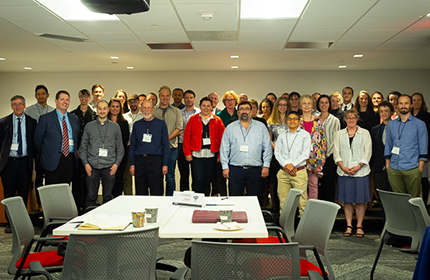Informing Risk Assessment with the Mosquito Gene Drive Explorer (MGDrivE)
-

May 20, 2019
1:00 pm - 2:00 pm(Virtual)
Washington, DC, USA
Part of the Gene Drive Modeling Conference Seminar Series

Ms. Valeri Vasquez
Berkeley Institute for Data Science University of California, BerkeleyThe advent of CRISPR/Cas9-based gene-editing and its demonstrated ability to streamline the development of gene drive systems has reignited interest in the application of this technology to disease-transmitting mosquitoes and insect agricultural pests. The versatility of the technology has also enabled a wide range of gene drive architectures to be realized, creating a need for their population-level and spatial dynamics to be explored using mathematical models. The Mosquito Gene Drive Explorer (MGDrivE) is a simulation framework designed to investigate the population dynamics of a variety of gene drive systems as they spread through spatially-explicit insect populations. While MGDrivE was primarily designed for application to the mosquito vectors of malaria and arboviruses such as dengue, Zika, and chikungunya, its modularity means that, with a few small changes, it could be applied to insect pests of agricultural significance, such as the medfly, spotted wing drosophila, or the Asian citrus psyllid vector of Citrus Huanglongbing. As part of the Gene Drive Modeling Conference Seminar Series, this online presentation focused on the modules of the MGDrivE framework, including assumptions, uncertainties, and planned modifications for agricultural pests. The presenters demonstrated the tool’s application in a few toy scenarios and discussed relevance to important risk assessment questions in the agricultural space.
The online seminar was by invitation only.



